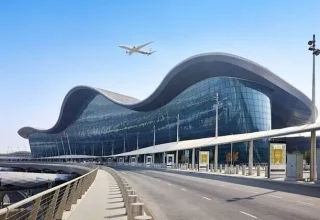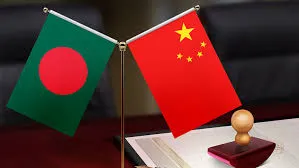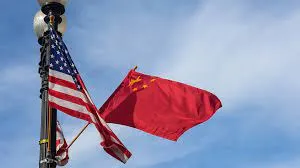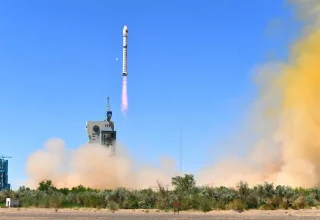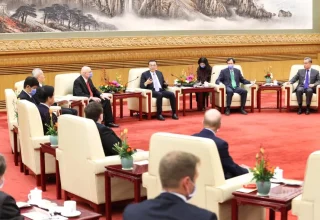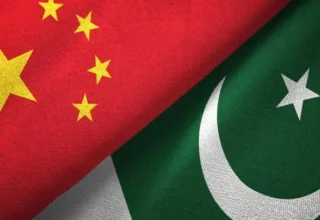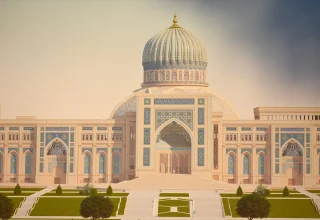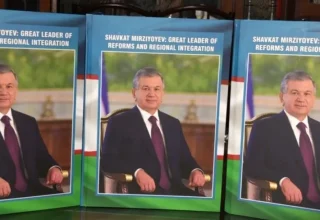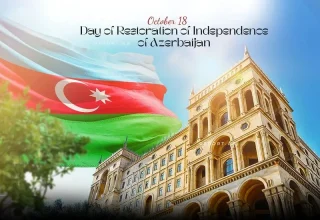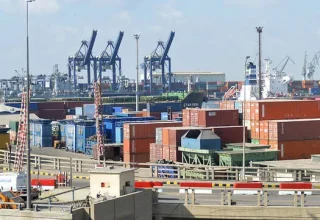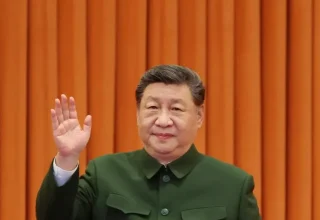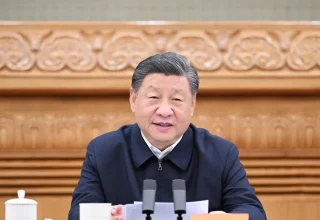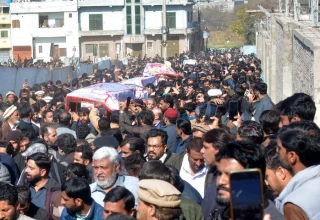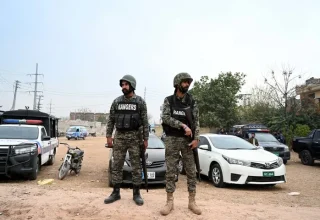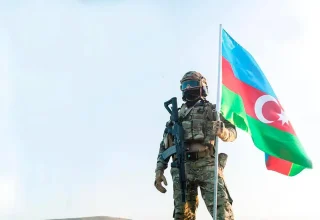
The 44-day war between Azerbaijan and Armenia, which took place from September 27 to November 10, 2020 has become a turning point in the South Caucasus, redefining the socio-economic conditions, geopolitical parameters and geo-strategic scenarios giving leverage to Azerbaijan being the victorious. Hence it completely transformed Azerbaijan’s macro-economy, qualitative industrialization, modernization, digitalization drives and further strengthened its national defense and enhanced its deterrence capabilities.
Resultantly, armed forces of Azerbaijan achieved a decisive military victory and long pending restoration of its territorial integrity became reality ending decades of Armenian occupation of Azerbaijan’s territories.
Unfortunately, on September 27, 2020 the armed forces of Armenia, palpably violating the ceasefire regime and launched another naked aggression against Azerbaijan, by intensively attacking the positions of the armed forces of Azerbaijan along the frontline. Armenian forces intentionally fired artillery shelling to residential areas of Tartar, Aghdam, Fuzuli and Jabrayil districts.
Moreover, densely populated residential areas Shamkir, Beylagan, Aghdam, Fuzuli, Jabrayil, Goranboy, Tartar, Barda, Aghjabadi and the city of Ganja were remained in the line of heavy fire, and bombardment, including with mid-range missiles.
It was indeed another flagrant violation of fundamental norms and principles of international law, IHL, including the Geneva Conventions of 1949 and its Additional Protocols, as well as the United Nations Security Council resolutions 822, 853, 874, 884 of 1993 highlighting the immediate, complete and unconditional withdrawal of the armed forces of Armenia from the illegal occupation of Azerbaijan territories.
In response to the Armenian aggression against Azerbaijan, on September 27, armed forces of Azerbaijan started the liberation of the territories, which had been occupied by Armenia in the wake of the First Karabakh War in the early 1990s.
The war that lasted 44 days and labeled as ‘the Patriotic War’, vividly reflected the strength of the Glorious Azerbaijani Army. By December 1, Azerbaijan succeeded in restoring its territorial integrity as the result of the trilateral ceasefire treaty among Azerbaijan, Armenia, and Russia that was signed on November 10, 2020, right after the liberation of the Shusha, the cultural capital of Azerbaijan, by the Glorious Azerbaijani Army.
According to Azerbaijan official data, 94 civilians, including children, women and elderly were killed, more than 400 civilians were wounded as a consequence of heavy artillery shelling and 2908 Azerbaijani soldiers were martyred, more than thousand were wounded, while 6 are still missing.
President Ilham Aliyev, being Supreme Commander-in-Chief, played an important role in achieving this historic victory. It was made possible because of the heroism of the victorious armed forces of the Azerbaijan army and the national spirit of its people.
Despite western propaganda both in terms of international law and in terms of historical justice, the state and people of Azerbaijan mobilized like an Iron Fist in 44 days to restore historical justice and Armenia was defeated.
Azerbaijan’s military campaign was characterized by its strategic precision and effective use of modern technologies. The Azerbaijani Armed Forces deployed advanced drones, precision-guided missiles, and artillery systems to neutralize Armenian defenses and achieve swift victories. This technological edge, combined with meticulous planning, allowed Azerbaijan to liberate key cities and regions, including Jabrayil, Fuzuli, Zangilan, and the culturally significant city of Shusha.
Following the war, Azerbaijan embarked on an ambitious reconstruction program aimed at rebuilding the liberated territories and facilitating the return of displaced citizens. Under the leadership of President Ilham Aliyev, the government prioritized the construction of housing, infrastructure, and essential services in the war-torn regions. Efforts were also made to restore cultural and historical landmarks, ensuring that the rich heritage of these areas was preserved for future generations.
Azerbaijan’s actions during and after the war received broad international support. The country’s territorial integrity is recognized by the United Nations and the vast majority of states.
Despite the challenges of post-war reconstruction, Azerbaijan also emphasized the need for peace and reconciliation. Achieving lasting peace in the region requires mutual recognition and respect between Azerbaijanis and Armenians. Azerbaijan consistently advocated for dialogue and cooperation.
In summary, September 27 marks the fifth anniversary of the start of the 44-day Patriotic War, a decisive moment in the modern history of the South Caucasus.
This historic day marks the beginning of Azerbaijan’s restoration of its territorial integrity and sovereignty over its internationally recognized territories, paving the way for the implementation of the four UN Security Council Resolutions adopted in 1993 and bringing an end to the thirty-year conflict with Armenia. This war and its decisive outcome played a crucial and transformative role in the development of a new security architecture in the South Caucasus, offering millions of people a reason to believe in the realization of long-awaited peace and justice.
Interestingly, the restoration and opening of vital transport corridors, such as the Trans-Caspian International Transport Corridor “East-West,” connecting Europe with Asia, is particularly significant given its role in strengthening the region’s logistical connectivity and unlocking new opportunities for international trade.
Additionally, the Zangezur Corridor is regarded as the momentous segment of the Trans-Caspian International Transport Corridor establishing a direct land link between Azerbaijan and its Nakhchivan exclave, securing an essential route bridging the Caspian and Mediterranean regions but also reinforces both east-west and north-south transport networks.
Hopefully it will further fasten regional socio-economic integration, enhance Europe-Asia connectivity, and contribute to the stability and diversification of global supply chains. The ongoing development of infrastructure and the implementation of key economic projects clearly demonstrate that the 2020 victory was not an end, but rather the beginning of a new and promising chapter for the South Caucasus, marked by sustainable development, deeper regional integration, and the consolidation of economic ties.
Tremendously, over the past 30 years, Azerbaijan’s GDP has developed more than 160 times, an extraordinary achievement almost unseen elsewhere in such a short timeframe. Between 1995 and 2024, exports increased 211 times, from $123 million to $26 billion, while non-oil and gas exports alone expanded 28 times. Macro-economy and its sub-sectors remained stable and sustainable, gearing the country towards greater green transformation.
The government of Azerbaijan stimulated economic growth, particularly within the non-oil and gas sector. This achievement is also reflected in the reduced inflation rate and the surplus in the balance of payments. Currently, Azerbaijan boasts strategic foreign exchange reserves totaling 68.3 billion US dollars, equivalent to 97 percent of the GDP. These reserves surpass the country’s direct foreign debt, which is 10 percent of the GDP.
The successful holding of the 29th Conference of Parties (COP29) to the UN Framework Convention on Climate Change, a highly prominent international event in Baku has been dubbed as one of the biggest dividends of the 44-day Patriotic War.
Most recently a peace deal mediated by the US and signed in Washington on 8 August, commits Azerbaijan and Armenia to adopt Soviet-era borders, renounce the use of armed force, and predicts “unimpeded connectivity” between Azerbaijan and its exclave of Nakhchivan through Armenian territory. Ending third-party observer involvement (through the OSCE) will meet a long-standing Azerbaijan demand.
Under the leadership of President Ilham Aliyev, Azerbaijan has demonstrated a steadfast commitment to building a prosperous future. The victory, achieved through a combination of military precision, diplomatic efforts, and national unity setting the stage for a new era of growth and development.






